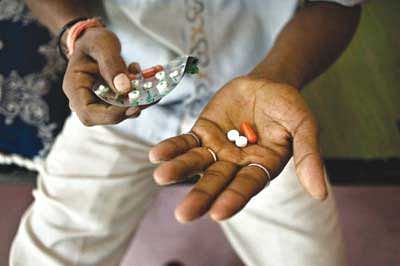Successful strategies to safeguard medications

Over several decades, powerful medicines have been developed to treat diseases such as tuberculosis, malaria, AIDS, influenza and many bacterial infections; all medicines used to treat these infections are likely become ineffective because of resistance at some point. Antimicrobial resistance (AMR) has evolved to become a worldwide health threat. Of critical importance, every antibiotic ever developed is at risk. With a dearth of new antibiotics coming to market, the need for action to avert a developing global crisis in health care is increasingly urgent.
Unnecessary and inappropriate use of antibiotics favours the emergence and spread of resistant bacteria. A crisis has been building up over decades. AMR makes it difficult and more expensive to treat many common infections, causing delays in effective treatment or, in worst cases, inability to provide treatment at all.
The World Health Organisation (WHO) has long recognised AMR as a growing global health threat, and published a book entitled "The evolving threat of antimicrobial resistance — Options for action" describes examples of actions taken to slow down drug resistance and preserve the ability of medicine to effectively treat many infectious diseases. Experts in that book provide certain recommendation to safeguard medicine. This includes prescribing antibiotics appropriately and only when needed, following treatment correctly, restricting the use of antibiotics in food production to therapeutic purposes and tackling the problem of substandard and counterfeit medicines.
Some of the examples of a number of successful strategies and measures highlighted in the book include:
• In Thailand, the "Antibiotic Smart Use" programme reduces the prescribing of and demanding for antibiotics by both prescribers and patients. It showed an 18–46% reduction in antibiotic use while 97% of targeted patients recovered or improved regardless whether they had taken antibiotics.
• A programme in pharmacies in Viet Nam consisting of inspection for prescription-only drugs; education on pharmacy treatment guidelines; and group meetings of pharmacy staff resulted in a significant reduction in antibiotic dispensing for acute respiratory infections.
• In Norway, the introduction of effective vaccines in farmed salmon and trout together with improved fish health management reduced the annual use of antimicrobials in farmed fish by 98 percent between 1987 and 2004.
• In 2010, the University of Zambia School of Medicine revised their undergraduate medical curriculum. The topics of AMR and rational use of medicines were inserted prominently. The aim is that graduates enter clinical practice with the right skills and attitudes to be both effective practitioners and committed stewards of AMR containment.
It is the high time to take much stronger action to safeguard medication. Otherwise, perilous post-antibiotic era is waiting for us.

 For all latest news, follow The Daily Star's Google News channel.
For all latest news, follow The Daily Star's Google News channel. 



Comments